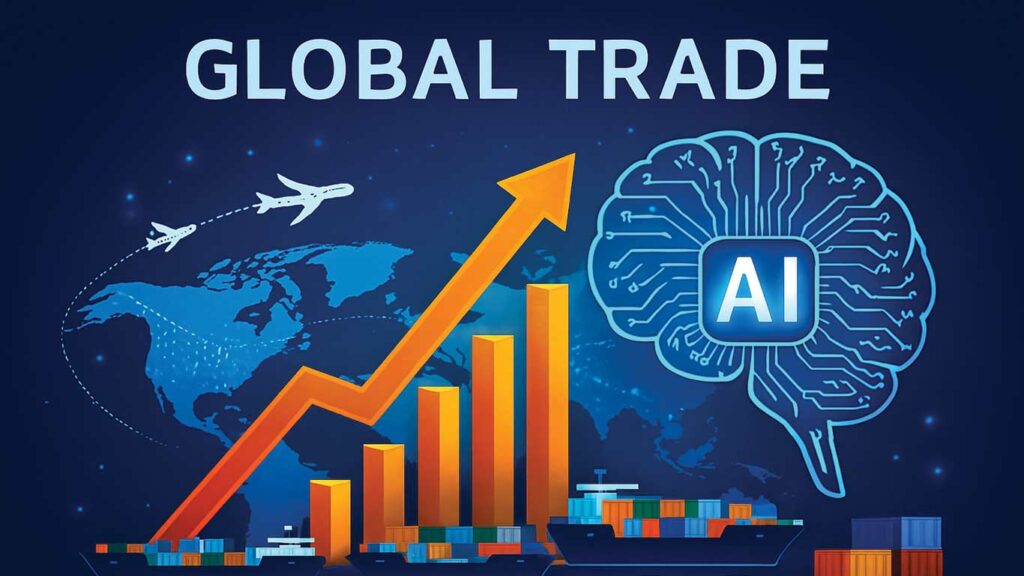Artificial intelligence (AI) could dramatically transform the global economy and international trade over the next two decades, according to a new World Trade Organization (WTO) report. The study projects that AI adoption could increase global trade in goods and services by 34–37% and boost global GDP by 12–13% by 2040—provided supportive policies are in place.
Driving Trade Growth
The report highlights how AI technologies will streamline supply chains, cut trade costs, and create opportunities for digital services. From predictive analytics improving logistics to AI-driven platforms enabling telemedicine, cloud computing, digital finance, and creative industries, the technology is expected to deepen global integration and drive efficiency.
Productivity Boost With Caveats
AI has the potential to act as a powerful productivity driver, enhancing competitiveness and fueling the emergence of new markets. However, the WTO cautions that these gains will not be automatic. Without deliberate policy action, AI could widen gaps between economies and deepen inequalities within them.
Risks of Unequal Benefits
Countries with advanced digital infrastructure, strong research and development, and skilled workforces are expected to capture the lion’s share of AI’s benefits. In contrast, nations with weak connectivity or underdeveloped education systems risk being left behind. Domestically, workers in routine or low-skill jobs could face significant displacement unless large-scale reskilling programs are implemented.
Policy Priorities
To mitigate these risks, the WTO urges governments to:
- Invest in digital infrastructure and connectivity
- Strengthen education and workforce reskilling initiatives
- Adopt inclusive trade policies
- Develop ethical and transparent AI standards
- Enhance international cooperation
A Defining Force for Globalization
The WTO frames AI as a defining force for the next phase of globalization. Whether it drives shared prosperity or deepens economic divides will depend less on the technology itself and more on how governments, businesses, and global institutions choose to regulate and deploy it.
As AI adoption accelerates, the coming years will test the ability of policymakers worldwide to balance innovation with inclusivity—shaping not just economies, but the future of international trade itself.

